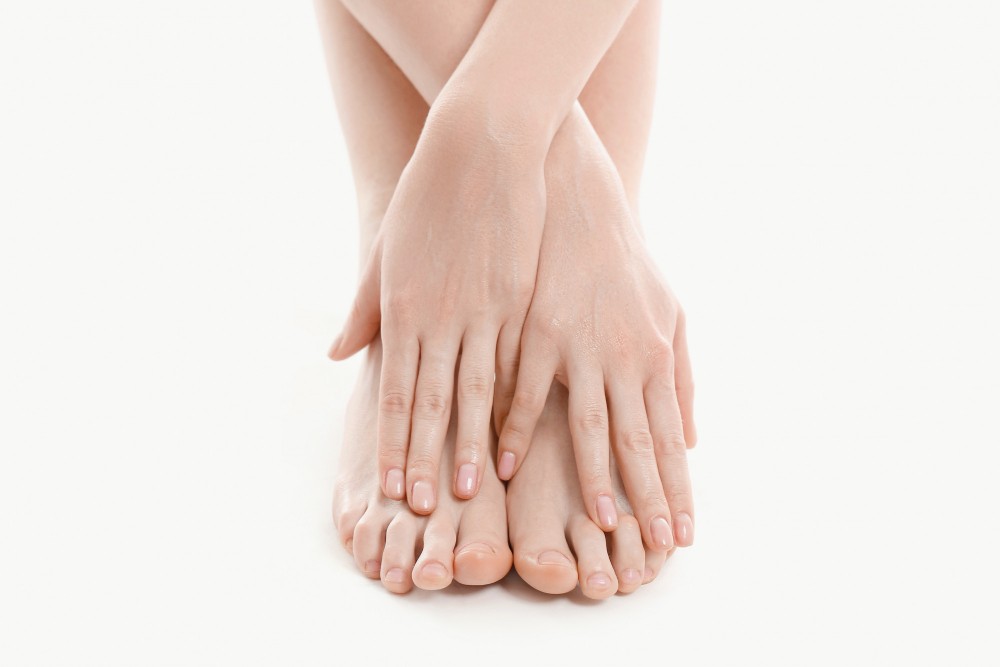Lymphedema is not an ordinary swelling. When lymph fluid cannot flow through the body's lymphatic system properly or there is a blockage in the lymphatic system, swelling can occur in areas of the body such as the legs, arms, chest wall, neck, abdomen, or genitals.
Lymphedema is characterized by the accumulation of protein-rich fluid, which can result from a variety of causes. Lymphedema can have an impact on an individual's quality of life. In addition to being uncomfortable, limb swelling can make movement difficult. Furthermore, because the lymphatic system is an important part of the immune system, this condition can be serious, with sufferers at a higher risk of developing potentially fatal infections.
Symptoms of lymphedema
Lymphedema is a chronic, long-term condition. The accumulation of fluid can cause changes in the skin and tissues. Lymphedema symptoms can range from mild to severe. Symptoms associated with lymphedema include:
- Swelling of one or more arms or legs
- A feeling of heaviness or tightness in the swollen area
- Limited range of motion due to swelling
- Increased risk of recurrent infection
- Hardening and thickening of the skin due to tissue changes in the affected area
- Difficulty or inability to see or feel blood vessels in the swollen area
- The swollen arm or leg appears to be a different size
- Stiff joints
- The area of skin where the swelling occurs appears reddish
- Burning or itching sensation in the area of swelling
Read more: Causes And Symptoms Of Lymphadenitis, an Infection of the Lymph Glands
Causes of lymphedema
Several health conditions can cause lymphedema, such as:
Obesity
Obese people have excess fatty tissue that can compress the vessels and lymph nodes. This increased pressure may have an effect on lymph fluid flow.
Obese people also have impaired lymphatic system function and abnormal inflammatory responses. These can have a negative effect on the lymphatic system. As a result, obese people are at a higher risk of fluid accumulation and swelling. Furthermore, obesity is frequently associated with chronic inflammation, which can exacerbate lymphedema.
Lack of physical activity
Lymphedema occurs when fluid accumulates in one part of the body. Physical activity is an excellent way to move and stimulate the flow of lymph fluid. Leg muscle movement, in particular, is important in improving lymphatic circulation because it helps push lymph fluid through the lymphatic vessels.
People who live sedentary or inactive lifestyles may experience decreased lymph flow. As a result, lymph fluid can accumulate in specific areas, causing swelling or lymphedema.
Read more: Be Alert When These Signs Appear; Stop Sports Activities Immediately
Blood vessel disorders
Blood vessels transport approximately 80–90% of fluid throughout the body. Therefore, disruption of both arterial and venous blood vessels can lead to health problems, including lymphedema. Long-term vascular disorders can affect the lymphatic system, resulting in lymphedema.
Kidney disease
The kidneys play an important role in maintaining fluid and electrolyte balance in the body. When kidney function is impaired or incapable of functioning properly, the kidneys may have difficulty removing excess fluid from the body. Kidney disease can also disrupt the lymphatic system. Eventually, fluid can accumulate and cause lymphedema.
Other medical conditions that can cause lymphedema include injuries, infections, tumors, and heart problems. Cancer treatments such as radiation therapy and surgery can also cause lymphedema.
The underlying condition and severity of symptoms determine lymphedema treatment and care. If you are experiencing swelling and other lymphedema symptoms, you should seek medical attention.
If you need medical advice or consultation, you can either visit a doctor or make use of the consultation features that are available in the Ai Care application by downloading the Ai Care application from the App Store or Play Store.
Looking for more information about other diseases? Click here!
- dr Hanifa Rahma
Mayo Clinic (2022). Lymphedema. Available from: https://www.mayoclinic.org/diseases-conditions/lymphedema/symptoms-causes/syc-20374682
Cleveland Clinic (2022). Lymphedema. Available from: https://my.clevelandclinic.org/health/diseases/8353-lymphedema
David Rossiaky (2023). What Is Obesity-Induced Lymphedema?. Available from: https://www.healthline.com/health/obesity/lymphedema-obesity
Cleveland Clinic (2023). Lymphatic System. Available from: https://my.clevelandclinic.org/health/body/21199-lymphatic-system
James D. Douketis, MD (2022). Lymphedema. Available from: https://www.msdmanuals.com/home/heart-and-blood-vessel-disorders/lymphatic-disorders/lymphedema











